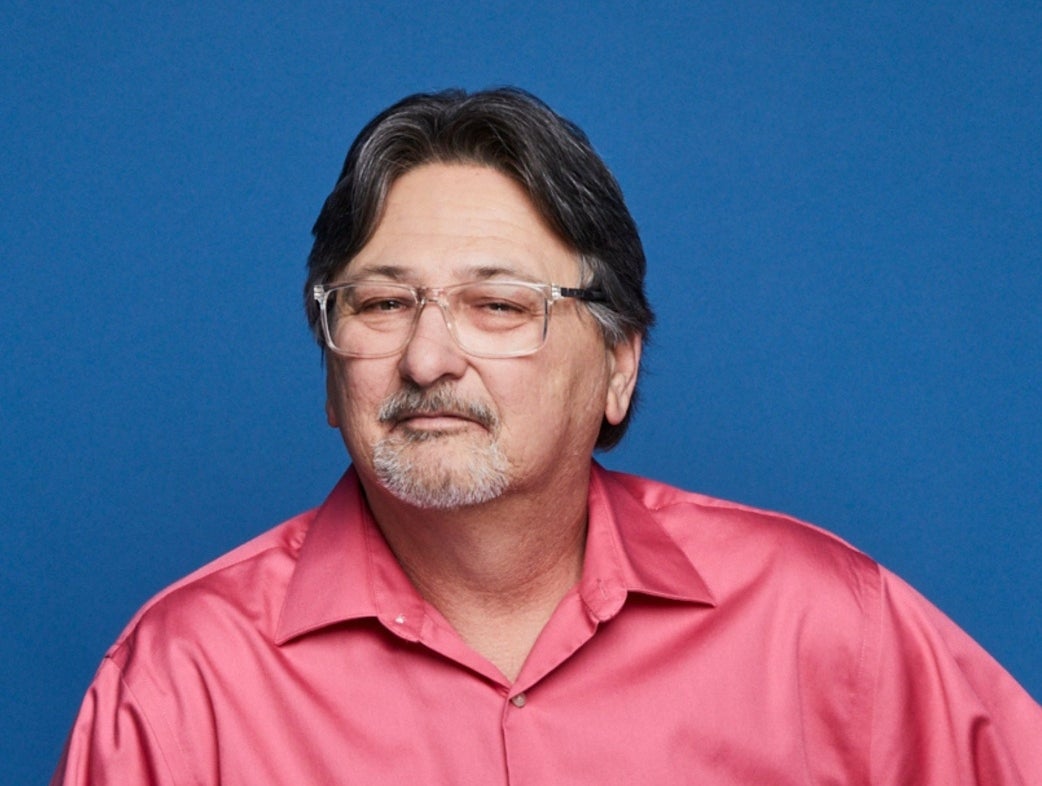
We fight for aviation crash victims.
From pilot error to faulty parts, we fight to hold those responsible for preventable crashes accountable.
See if you qualifyThe attorney shown above may not be licensed in your state. To find an attorney licensed in your area, please visit our attorney page.

The attorney shown above may not be licensed in your state. To find an attorney licensed in your area, please visit our attorney page.
Meet Our Aviation Accident Attorneys
Our aviation attorneys thoroughly investigate every aircraft tragedy and fight for victims of commercial airline, private airplane, flight school crashes, and helicopter crashes, securing compensation for medical costs, lost wages, pain, suffering, and wrongful death claims, which, unfortunately, with aircraft crashes, are too often the result.
Morgan & Morgan's Aviation Accident Lawyers Make All the Difference
Don’t Be Lowballed by an Insurance Company
Covering All Types of Aviation Cases
Proven Experience, Powerful Results
Legal Help with No Upfront Costs
Ways We Can Help
Commercial Airplane Crash
Private Plane Crash
Helicopter Crash
In Their Words
Based on select nationwide reviews.
Aviation crash cases need three things, including, but not limited to:
Proof of negligence or fault
Aviation law jurisdiction
Demonstrable damages
Fighting For the People
Backed by America’s Largest Injury Law Firm.
$30 Billion
Recovered for clients
nationwide700,000+
Clients and families
served1,000+
Attorneys across
the country1
Click may change your life

The attorney featured above is licensed in Florida. For a full list of attorneys in your state please visit our attorney page.
Results may vary depending on your particular facts and legal circumstances.
Common Causes of Aviation Accidents
Pilot Error
Mechanical Failures/Airworthiness
Weather Conditions
Mid-Air or Runway Collisions
Fuel-Related Issues
Foreign Object Damage
Learn More
Injured and not sure what to do next?
We'll guide you through everything you need to know.
Why are airplane accidents and aviation disasters on the rise?
While aviation is still statistically one of the safest ways to travel, there has been a noticeable uptick in crashes and serious incidents recently, especially in private, cargo, and smaller commercial flights. Here are some of the key reasons experts believe aviation crashes may be on the rise:
Aging Aircraft Fleets
Many private and regional aircraft in use today are decades old. While routine maintenance helps extend their lifespan, older planes are more prone to mechanical issues, part failures, and system malfunctions, especially if corners are cut on upkeep.
Maintenance Shortages
There’s currently a nationwide shortage of aviation mechanics and certified maintenance technicians. In fact, FAA data show the number of certificated mechanics has grown an average of just 2.3% a year over the past five years. Current estimates show that commercial aviation alone will be 31,000 mechanics short of its needs by 2031.
With fewer skilled workers doing more with less, some aircraft may not be getting the attention and care they need, increasing the risk of mechanical failure.
Pilot Shortage and Fatigue
The aviation industry is facing a major pilot shortage, especially post-pandemic. Airlines and charter operators are flying with fewer staff, which means pilots may be working longer hours with less rest. Fatigue, inexperience, or rushing through protocols can lead to deadly mistakes.
More Extreme Weather Events
As climate change accelerates, we’re seeing more unexpected and severe weather—from turbulence to sudden storms and wind shears. This can make flying riskier, especially for smaller planes that aren’t built to withstand harsh conditions.
Increase in Private and Recreational Flights
There’s been a boom in private aviation, drone usage, and recreational flying, especially after COVID. More inexperienced pilots in the skies, combined with less regulatory oversight in private aviation, can lead to more accidents.
Lapses in Air Traffic Control
In some countries and regions, air traffic control infrastructure is outdated, or controllers are overworked. Miscommunications or delayed alerts can result in near-misses or, in worst cases, crashes.
Complexity of New Technology
Modern aircraft are increasingly automated, which is generally safer—until it isn’t. Over-reliance on automated systems or poor training in handling system failures (like in the Boeing 737 MAX tragedies) can lead to pilot confusion and crashes.
Underreporting and Delayed Safety Fixes
In some cases, airlines or manufacturers may delay safety upgrades or fail to report known issues quickly enough. When safety takes a backseat to profits, passengers and pilots pay the price.
Aviation crashes may still be rare, but when they happen, they’re often tragic and preventable. That’s why strong legal oversight and accountability, like what Morgan & Morgan fights for, are so important. When manufacturers, operators, or airlines fail in their duty of care, we step in For The People to make sure it doesn’t happen again.
What is aviation law?
Aviation law is a specialized area of law that deals with the operation, regulation, and use of aircraft. It encompasses a broad range of legal issues, including:
- Airline liability for injuries and deaths
- Aircraft accidents and investigations
- Pilot negligence or error
- Aircraft maintenance and manufacturing defects
- Airport operations
- Regulations by the Federal Aviation Administration (FAA) and the National Transportation Safety Board (NTSB)
Because air travel involves federal regulations, international treaties, and complex technical investigations, aviation law often intersects with personal injury law, wrongful death claims, product liability, and even international law.
Who needs an aviation attorney?
There are a number of individuals and groups who may require the services of an aviation attorney. These include:
- Passengers injured in commercial or private plane crashes
- Families of victims involved in fatal aviation accidents
- Pilots facing litigation or license issues
- Crew members injured on the job
- Aircraft owners and operators dealing with liability issues
- Aviation professionals involved in regulatory or compliance disputes
No matter how minor or major the incident may seem, having the right legal representation can make all the difference in your case.
What are the common types of aviation accidents?
Aviation accidents can take many forms, and not all involve catastrophic crashes. Here are several common types of aviation-related incidents that could warrant legal action:
Commercial Airline Crashes
These are high-profile tragedies that typically involve multiple injuries or fatalities. In these cases, federal agencies like the FAA and NTSB will launch investigations, but victims and families often need private representation to pursue compensation.
Private and Charter Plane Crashes
Private aircraft accidents may not get the same media attention, but they can be just as deadly. These cases often involve pilot error, mechanical failure, or poor maintenance.
Helicopter Crashes
Helicopters are used for medical transport, tourism, and news coverage, and they are often involved in crashes due to challenging weather conditions, mechanical issues, or navigation errors.
Drone Accidents
With the rise of drone usage for commercial and recreational purposes, legal issues surrounding drone crashes and injuries are becoming more common.
Airport Accidents
Slips and falls, tarmac vehicle collisions, and ground crew injuries can occur within the airport environment and may fall under aviation law depending on the circumstances.
What are the common causes of aviation accidents?
When determining who is liable for an aviation accident, it’s helpful to understand the common causes of these unfortunate events. Our attorneys work with aviation experts and investigators to identify the root cause of an incident, which may include:
- Pilot error or inexperience
- Mechanical failure
- Defective aircraft parts
- Weather conditions
- Air traffic control miscommunication
- Negligent maintenance
- Improper fueling
- Violation of FAA regulations
Often, multiple parties may share liability in an aviation accident, including airlines, pilots, manufacturers, and maintenance companies.
What does an aviation attorney do?
Aviation law is not your average legal specialty. It requires a deep understanding of both legal precedent and aviation technology. Here’s what you can expect an aviation attorney to do:
Investigate the Incident
An aviation attorney works with engineers, aviation experts, and former pilots to gather evidence, analyze black box data, review maintenance logs, and interview witnesses.
Determine Liability
Aviation cases often involve multiple potential defendants. Your attorney will work to determine who is legally responsible—be it the airline, manufacturer, maintenance crew, or pilot.
Handle Insurance and Claims
Aviation accidents usually involve large insurance companies that will fight hard to minimize payouts. Our attorneys know how to negotiate aggressively to ensure victims get fair compensation.
Navigate Federal and International Laws
Because air travel crosses state and national boundaries, aviation attorneys must be familiar with international treaties like the Montreal Convention and federal statutes governing aviation liability.
Pursue Compensation
Depending on the case, victims may be eligible for compensation for:
- Medical expenses
- Lost wages
- Pain and suffering
- Emotional distress
- Disability or disfigurement
- Wrongful death damages
Can I sue if a loved one died in a plane crash?
Yes, you may be able to file a lawsuit if a loved one died in a plane crash, and in many cases, you absolutely should. If negligence, recklessness, or wrongdoing played any role in the crash, you may be entitled to file a wrongful death lawsuit against the parties responsible.
Who can be sued in an aviation wrongful death case?
Plane crashes are often complex, and multiple parties may share responsibility. Depending on the circumstances, your lawsuit could be filed against:
- The airline or charter company: for pilot error, poor maintenance, or safety violations
- The aircraft manufacturer: if a defective part or design flaw contributed to the crash
- Maintenance providers: if negligent upkeep or missed inspections caused mechanical failure
- Air traffic controllers or government entities: if there were communication errors or oversight failures
- Private owners or operators: in the case of private plane crashes
- Third-party contractors: like those responsible for fueling, loading, or flight planning
Each crash is unique, and an aviation attorney can help identify who is liable based on flight data, black box evidence, maintenance logs, and more.
What is a wrongful death lawsuit?
A wrongful death lawsuit is a legal claim brought by surviving family members (such as a spouse, child, or parent) when someone dies due to another’s negligence or misconduct.
In aviation cases, wrongful death claims can be pursued in both domestic and international crashes, though the legal process varies depending on where the accident occurred and what type of flight it was (commercial vs. private, U.S. vs. foreign airline).
What compensation can be recovered from an aircraft accident?
While no amount of money can ever replace a loved one, the law allows families to seek compensation for:
- Medical expenses (if the person survived briefly after the crash)
- Funeral and burial costs
- Loss of income and future earnings
- Loss of companionship, guidance, and support
- Emotional distress and suffering
- Punitive damages (in certain cases of gross negligence or misconduct)
Is there a time limit to file a lawsuit for an aviation accident?
Yes, there is a statute of limitations, which sets a deadline for filing a wrongful death lawsuit. This varies by state and case type. However, international aviation cases can have different timelines due to treaties like the Montreal Convention.
That’s why it’s so important to talk to an aviation attorney as soon as possible to preserve your rights and start the investigation while the evidence is still fresh.
Can I still file a lawsuit if an airplane crash happened abroad?
Yes, in many cases, families of victims can still file lawsuits in U.S. courts, even if the crash occurred in another country. The key is where the flight originated, landed, or where the airline does business. You may have a case if:
- The airline is U.S.-based or has substantial U.S. operations
- The passenger was a U.S. citizen or resident
- The ticket was purchased in the U.S.
- The flight began or was intended to land in the U.S.
In these situations, you may be protected under both U.S. wrongful death laws and international treaties like the Montreal Convention.
Where would my crash case be heard?
In many international crash cases, you may have the option to file your lawsuit in:
- The country where the airline is based
- The country where the ticket was purchased
- The country of the passenger’s final destination
- The country where the passenger resided
- The country where the crash occurred (if no better option applies)
Choosing the right jurisdiction is important because it affects the legal process, the available damages, and your chances of success. That’s why working with a U.S.-based aviation law firm, like Morgan & Morgan, is so important.
What if the foreign airline or country is uncooperative?
Some countries or airlines may try to avoid liability or make the process intentionally difficult. But that doesn’t mean you’re out of options.
Morgan & Morgan works with a network of international aviation experts and legal teams to cut through red tape and hold foreign carriers accountable, especially when they operate or conduct business in the U.S.
We can help investigate:
- Crash reports and black box data
- Airline safety records
- International aviation compliance violations
- Maintenance and pilot logs
- Design and manufacturing defects (even if built overseas)
Do I need to hire an aviation crash expert for my case?
While you don’t need to hire an expert yourself, successful aviation cases often rely on expert testimony. At Morgan & Morgan, we handle that for you, bringing in trusted professionals to support your case.
Aviation cases are not only legally complex—they’re emotionally charged and deeply personal. That’s why you need a law firm with the resources, experience, and dedication to fight for you every step of the way.
With offices in every state across the country, we can represent aviation accident victims no matter where they live or where the accident occurred.
Plus, at Morgan & Morgan, we believe everyone deserves justice, regardless of their financial situation. That’s why we work on a contingency fee basis—you don’t pay us a dime unless we win your case.
We have handled aviation cases involving everything from small aircraft crashes to major airline disasters. Our team knows how to build strong cases, negotiate with powerful entities, and take cases to trial if necessary.
Our firm has represented clients in a variety of aviation-related matters, including:
- Wrongful death lawsuits stemming from commercial airline crashes
- Private plane crashes involving mechanical defects
- Helicopter crashes involving news and tourism operators
- Cases against manufacturers for faulty aircraft components
Each case is unique, but our commitment remains the same: to fight For The People, not the powerful.
Air travel may be one of the safest ways to get from point A to point B, but when things go wrong, the consequences can be life-changing. Whether you’ve been injured in a plane crash or lost someone you love, Morgan & Morgan is here to help you navigate the path forward.
Our aviation attorneys understand the legal, technical, and emotional complexity of these cases. We’re committed to helping you seek justice, and we won’t settle for less than you deserve.
Do I have to pay for a consultation about an airplane accident claim?
No. Consultations at Morgan & Morgan are completely free. We believe everyone deserves access to legal advice, regardless of their financial situation.
Hiring one of our lawyers is easy, and you can get started in minutes with a free case evaluation on our site or by phone.
Who will be on my case team for my aviation accident claim?
When you hire Morgan & Morgan, you don’t just hire a lawyer; you hire the largest personal injury law firm in the country with an army of over 1,000 lawyers and offices in all 50 states and Washington, D.C.
Your case will be handled by a dedicated team of professionals, including personal injury lawyers, paralegals, and support staff. You will be assigned a care team that includes a primary attorney who will oversee your case and ensure you receive personalized attention throughout the process.
When do I meet with my aviation accident lawyer?
We love talking to our clients. You will primarily communicate with your Case Manager via telephone and email, and if you would like to speak directly with your attorney via telephone, we will make that happen by scheduling a call.
Why should I hire an aviation accident attorney at Morgan & Morgan?
Choosing the right legal team can make all the difference in the outcome of your case. With over 35 years of experience handling car accident cases, our attorneys are well-versed in state and federal traffic laws, as well as insurance regulations. We know what it takes to build a strong case and secure the compensation you deserve.
When you choose Morgan & Morgan, you’re not just hiring a lawyer; you’re gaining access to an entire army of legal professionals dedicated to your case. This includes paralegals, investigators, and medical experts who work together to build the strongest possible case on your behalf.
And the best part is you don’t pay a dime unless we win your case. We understand that after a car accident, the last thing you need is additional financial stress. That’s why we operate on a contingency fee basis. That’s right—the Fee Is Free™, you only pay a share of your compensation if we win.
As the nation’s largest personal injury law firm, when you work with Morgan & Morgan, you send a clear message that you mean business. Morgan & Morgan has recovered over $30 billion for our clients, and our reputation for winning is known across the country.
You don’t have to face this challenging time alone. At Morgan & Morgan, we are committed to helping car accident victims like you navigate the complexities of their claims and achieve the justice and compensation they deserve. Remember, our services are free unless we win your case, and we’re here to fight for you every step of the way.
If you’ve been injured in a car accident, don’t delay. Fill out our free case evaluation form today to find out how Morgan & Morgan can help you take the first step toward recovery and justice.





